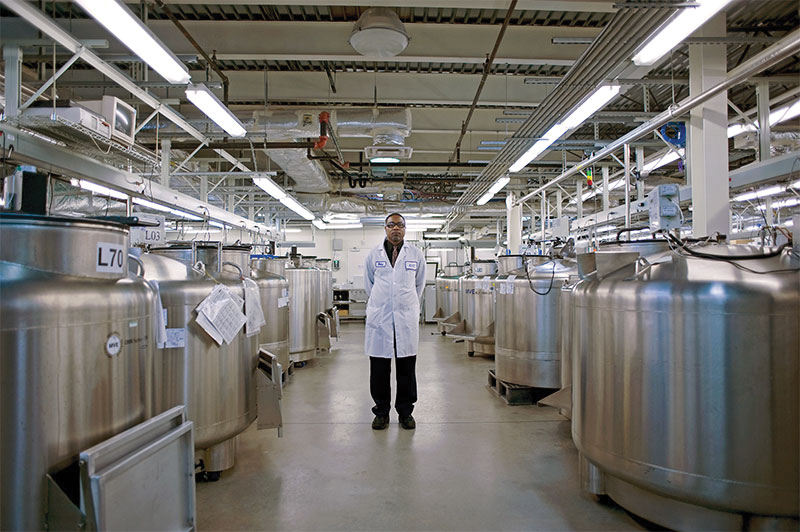Virginia Tech enters pact to accelerate biomaterial distribution to global research community

Virginia Tech has entered into an agreement with ATCC, a nonprofit global biological materials resource and standards organization, to make important biological materials available to the research community.
ATCC this week announced material deposit agreements with Virginia Tech and more than 30 other public and private research institutions to participate in a new Biomaterial Contributor Network.
Virginia Tech Intellectual Properties (VTIP) and the university's Office of Sponsored Programs coordinated with ATCC to create a simple, streamlined process for adding new microbial strains and cell lines to the ATCC collection.
“When biological materials are involved in a patent done under one of our invention disclosures, we deposit the materials with ATCC,” said Mark Coburn, president of VTIP. “By law, when an invention relates to new biological material, the material may not be reproducible even with detailed procedures and descriptions included in the specifications. It is then a condition of the patent grant that physical samples of such materials be deposited and made available to the public.”
Many of the participants will have an opportunity to receive a share of the revenue from the sale and licensing of materials developed at their institutions, according to an ATCC press release.
“Since 1925, ATCC has set the standard for providing the largest and most diverse collection of authenticated biological materials to the scientific community,” said Raymond Cypess, chief executive officer of ATCC. “The network enables contributors to create a lasting impact on science around the globe.”
Government agencies with agreements include the Centers for Disease Control and Prevention, the Food and Drug Administration, the National Institutes of Health, and the U.S. Department of Agriculture — Agricultural Research Service.
In addition to Virginia Tech, academic institutions with agreements include but Albert Einstein College of Medicine of Yeshiva University, Baylor College of Medicine, Colorado State University, Fred Hutchinson Cancer Research Center, George Mason University, Johns Hopkins University School of Medicine, King’s College London, the Massachusetts Institute of Technology, Michigan State University, National University of Singapore, Northwestern University, The Pennsylvania State University, Stanford University, the University of British Columbia, several campuses of the University of California, University of Florida, the University of Illinois at Urbana-Champaign, the University of Maryland, the University of North Carolina at Chapel Hill, the University of Toronto, the University of Virginia, and Wake Forest University.
Dedicated to its motto, Ut Prosim (That I May Serve), Virginia Tech takes a hands-on, engaging approach to education, preparing scholars to be leaders in their fields and communities. As the commonwealth’s most comprehensive university and its leading research institution, Virginia Tech offers 240 undergraduate and graduate degree programs to more than 31,000 students and manages a research portfolio of $513 million. The university fulfills its land-grant mission of transforming knowledge to practice through technological leadership and by fueling economic growth and job creation locally, regionally, and across Virginia.



.jpg.transform/m-medium/image.jpg)
